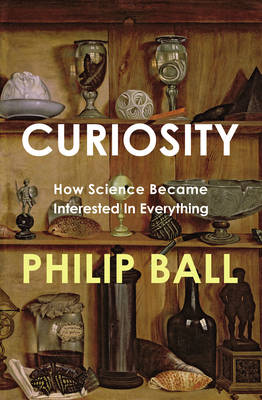There was a time when curiosity was condemned. To be curious was to delve into matters that didn't concern you - after all, the original sin stemmed from a desire for forbidden knowledge. Through curiosity our innocence was lost.
Yet this hasn't deterred us. Today we spend vast sums trying to recreate the first instants of creation in particle accelerators, out of pure desire to know. There seems now to be no question too vast or too trivial to be ruled out of bounds: Why can fleas jump so high? What is gravity? What shape are clouds? Today curiosity is no longer reviled, but celebrated.
Examining how our inquisitive impulse first became sanctioned, changing from a vice to a virtue, Curiosity begins with the age when modern science began, a time that spans the lives of Galileo and Isaac Newton. It reveals a complex story, in which the liberation – and the taming – of curiosity was linked to magic, religion, literature, travel, trade and empire.
By examining the rise of curiosity, we can ask what has become of it today: how it functions in science, how it is spun and packaged and sold, how well it is being sustained and honoured, and how the changing shape of science influences the kinds of questions it may ask.
- ISBN10 1847921728
- ISBN13 9781847921727
- Publish Date 17 May 2012
- Publish Status Out of Print
- Out of Print 17 January 2017
- Publish Country GB
- Publisher Vintage Publishing
- Imprint The Bodley Head Ltd
- Format Hardcover
- Pages 480
- Language English
